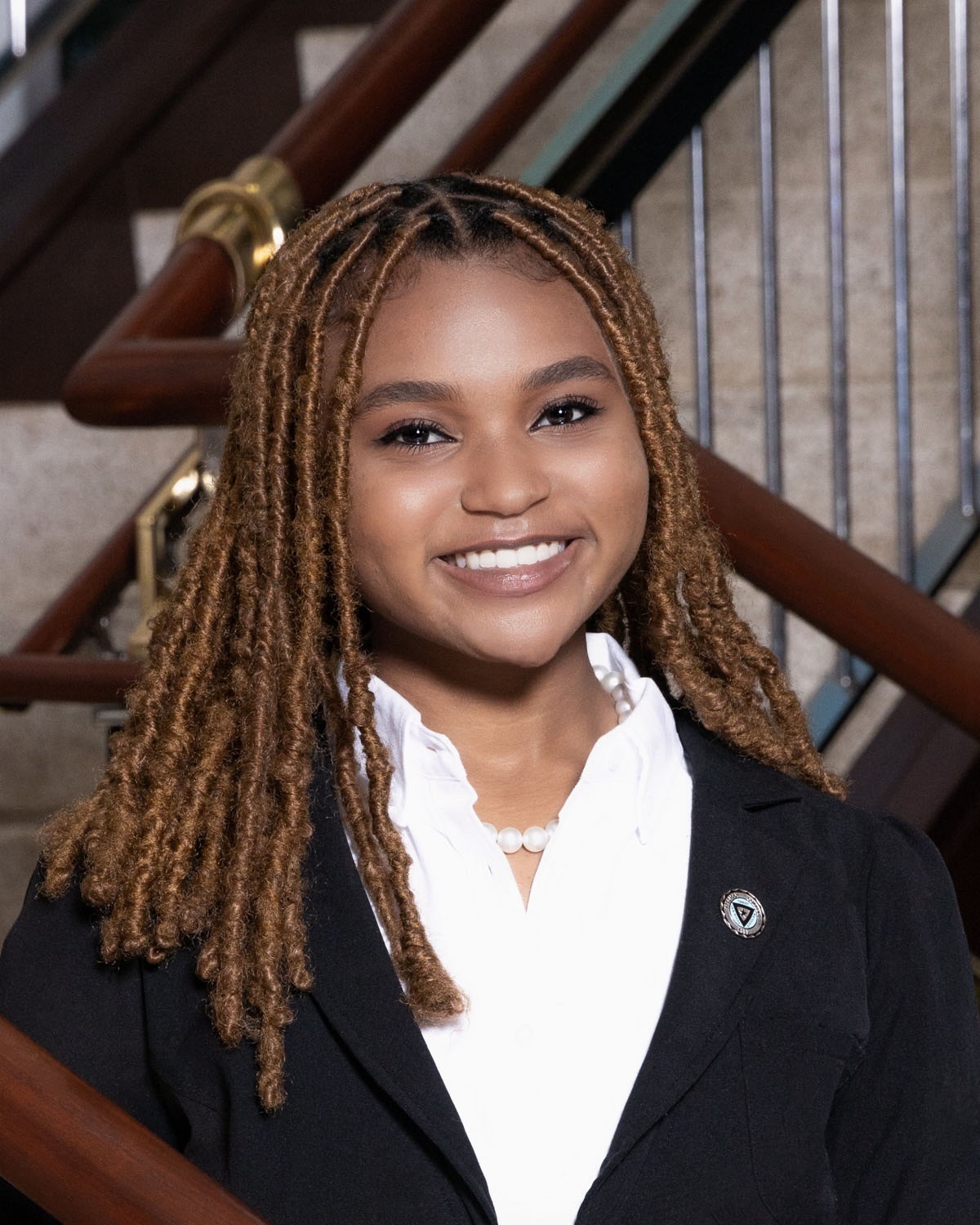14 February 2025 2 minute read
It was a simple experiment – analyzing soil samples from around Spelman College to test for lead contamination. But for Aliyah Webster, this was a defining moment. Under the guidance of Dr. Peter Chen, she realized that she was doing more than just chemistry; she was addressing a pressing social justice issue: environmental racism.
"That project opened my eyes to how science can be used for advocacy," Webster recalls. "I knew then that I wanted my work to have a tangible impact on marginalized communities."
Webster's path to becoming a first year Ph.D. student in the Integrated Toxicology and Environmental Health Program at Duke University began at Spelman where she graduated with high distinction with a major in biochemistry and a minor in mathematics. Spelman was her first and only choice – early decision, no back up plan – because she craved an environment where she could grow among her people, and truly understand the diversity within her own culture.
"I wanted to be challenged in every way — academically, socially and personally," Webster explains. "After attending predominantly white K-12 schools, I longed to truly immerse myself in my culture."
 At Spelman, Webster's passion for mentorship and service took center stage. She served on class council during her first two years, and joined Mini Skirts, a program that paired her with an elementary school mentee. By her senior year, she become co-chair of the organization, leading initiatives that brought young girls to campus to meet student leaders, and even the former College president Helene Gayle, M.D.
At Spelman, Webster's passion for mentorship and service took center stage. She served on class council during her first two years, and joined Mini Skirts, a program that paired her with an elementary school mentee. By her senior year, she become co-chair of the organization, leading initiatives that brought young girls to campus to meet student leaders, and even the former College president Helene Gayle, M.D.
"We wanted them to see themselves here at Spelman one day," she reflects. "And seeing those young girls look up to us and knowing we were making an impact was incredibly fulfilling.”
As a LINCS Scholar and participant in the Women of Excellence in Leadership Series (WELS) at Spelman, Webster honed her leadership skills. Through WELS, she engaged with Black women executives from Wells Fargo and corporate board members -- experiences that solidified her confidence in her ability to navigate the professional world.
"It was so empowering to see Black women thriving in leadership," she says. These encounters culminated in her ringing the opening bell at the New York Stock Exchange. "It was surreal," she admits. "That experience reinforced that we belong in these spaces."
In the lab, Webster found her true calling. As a student deeply invested in STEM, she struggled to connect her scientific pursuits with her passion for social justice. Her analytical chemistry class with its focus on soil testing provided the answer. Her exploration of previous findings that found elevated lead levels in the West End coupled with the lab experiments she performed opened her eyes to the real world implications of environmental health disparities.
"That was my lightbulb moment," she says. "Science isn’t just about formulas — it’s about people. It’s about using data to advocate for change." This revelation coupled with guidance from mentors like Dr. Sheena Sanders and Dr. Kimberly Jackson, Webster began to explore environmental health and toxicology programs for graduate school.
Now at Duke University, Webster remains committed to merging science with social justice. Dedicated to researching environmental toxins, champions policies that safeguard under represented communities from the long-term health effects of pollution and industrial neglect. Her work exemplifies the power of Black women in STEM – pioneers who were not only shaping the field, but actively striving for a healthier, more just world.
"I want my work to expand beyond the lab — I want it to influence policies that will directly improve the lives of those most affected by environmental racism,” she affirms.
Aliyah Webster's journey is defined by purpose, passion, and perseverance. From mentoring girls to conducting groundbreaking research, she embodies the legacy of excellence and advocacy. As she continues to advance our career, one thing is clear – she is not just studying science, she’s using it to make a lasting impact
